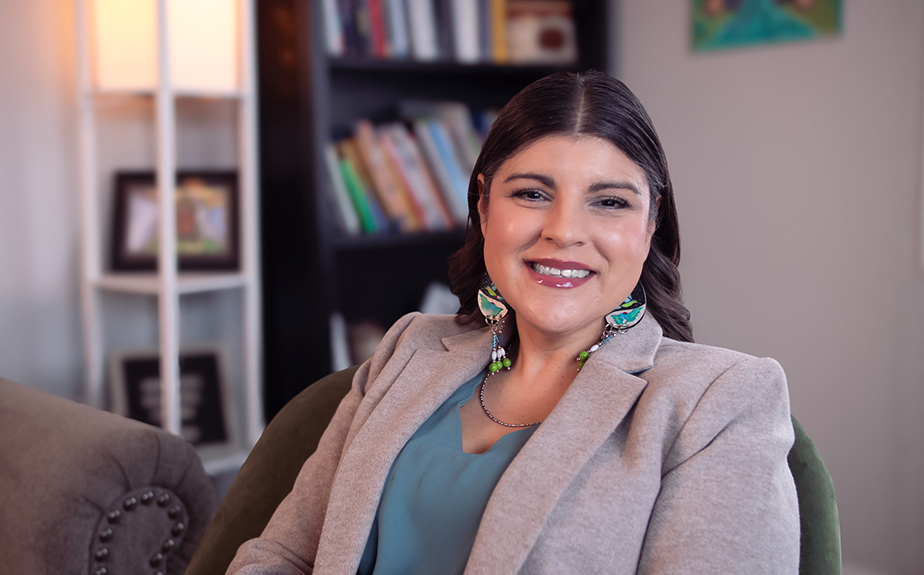Home / Dr. Tami

“I take a multi-faceted approach to healing and wellness that incorporates faith, traditional Native American practices, creativity, and the Western medical model.”
– Dr. Tami Jollie-Trottier
Dr. Jollie-Trottier is an enrolled member of the Turtle Mountain Band of Chippewa. She is a licensed clinical psychologist who served 20 years in mental health services to her rural reservation community located in Belcourt, ND.
Dr. Jollie-Trottier has over 20 years of cultural mentoring, guidance, and instruction from her Anishinaabe culture keepers. She incorporates her knowledge and healing work into every aspect of her psychological approaches to Indigenize services that meet cultural, spiritual, mental, and physical needs of those her clinic serves and trains.
Dr. Jollie-Trottier owns and operates Indigenized Behavioral Healing, located in her hometown of Belcourt, ND. She individualizes her approach to wellness by blending her passion for living a healthy lifestyle with art, culture, and spiritual growth and symbolism.
She is nationally known for her public speaking and has been recognized by Minot State University as 2015 Young Alumni Achievement Award for her accomplishments in the area of Health and Wellness in Indian Country. Dr. Jollie-Trottier.
Real conversations at the intersection of psychology, culture, and community—where lived experience meets clinical insight.
A psychologist is an individual who is licensed to practice psychology which is defined as the observation, description, evaluation, interpretation, and modification of human behavior by the application of psychological principles, methods, and procedures, for the purpose of preventing or eliminating symptomatic, maladaptive, or undesired behavior and of enhancing interpersonal relationships, work and life adjustment, personal effectiveness, behavioral health, and mental health
The practice of psychology includes, but is not limited to, psychological testing and the evaluation or assessment of personal characteristics, such as intelligence, personality, abilities, interests, aptitudes, and neuropsychological functioning, and therapy; diagnosis and treatment of mental and emotional disorder or disability, alcoholism and substance abuse, disorders of habit or conduct, as well as of the psychological aspects of physical illness, accident, injury, or disability; and psychoeducational evaluation, therapy, remediation, and consultation.
